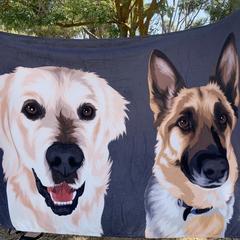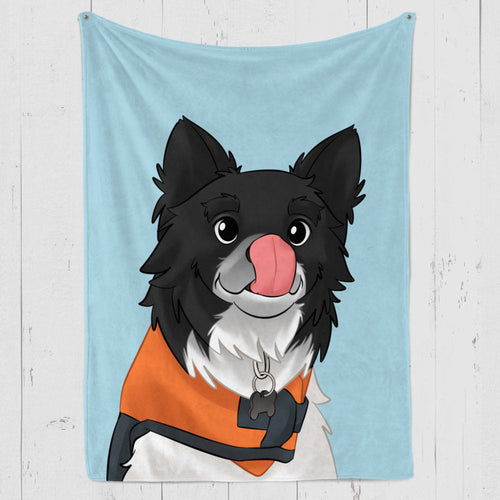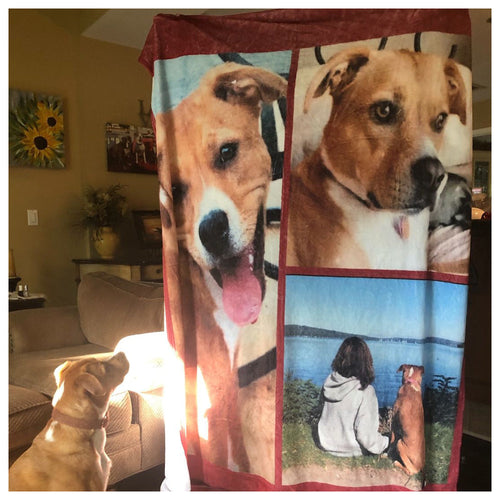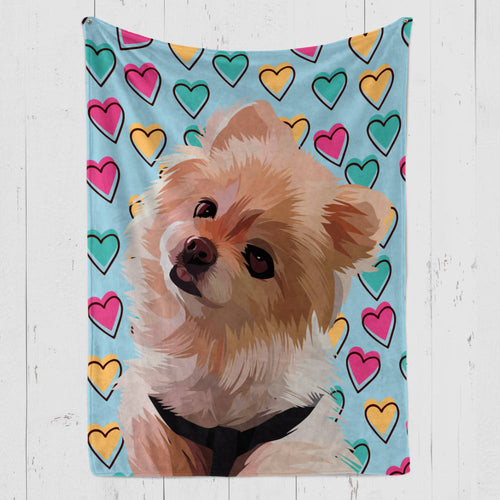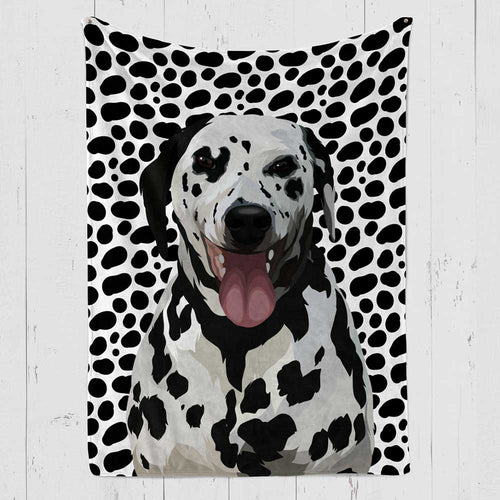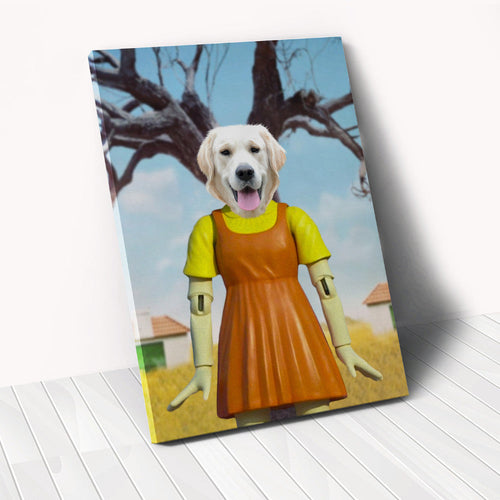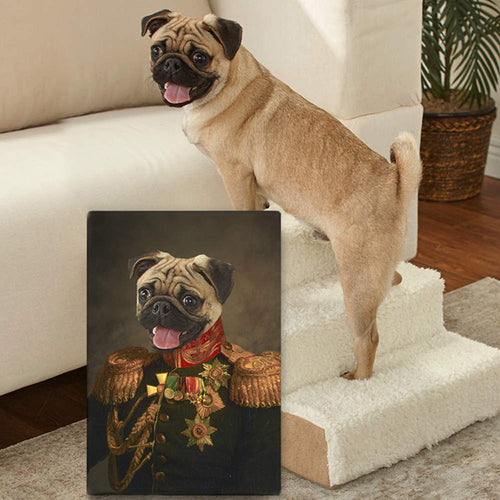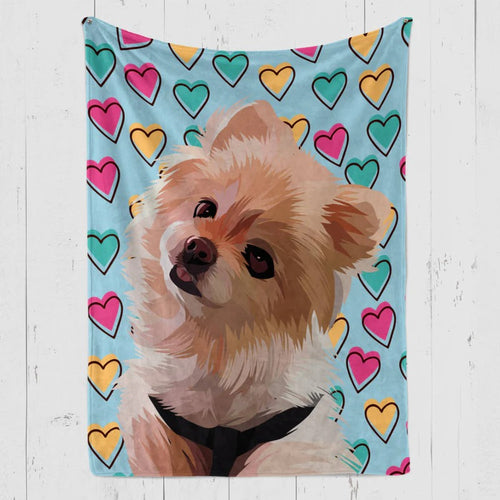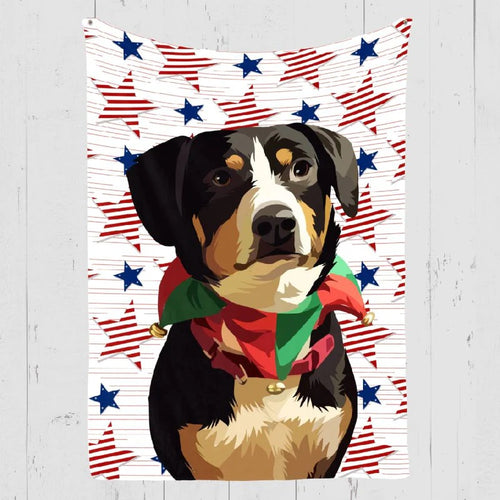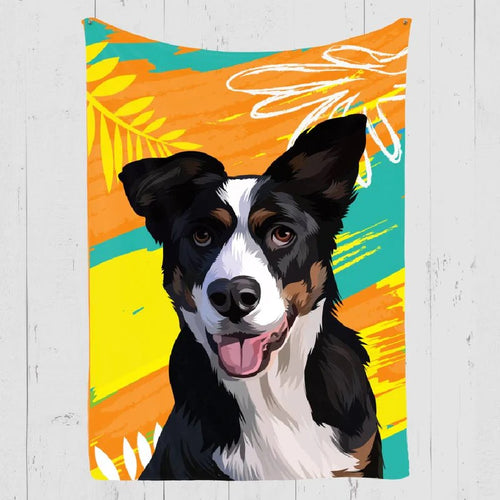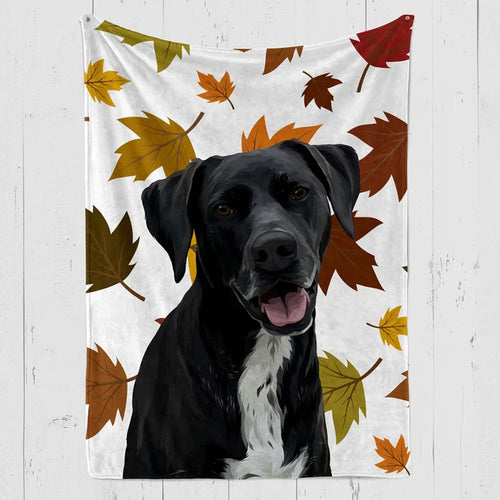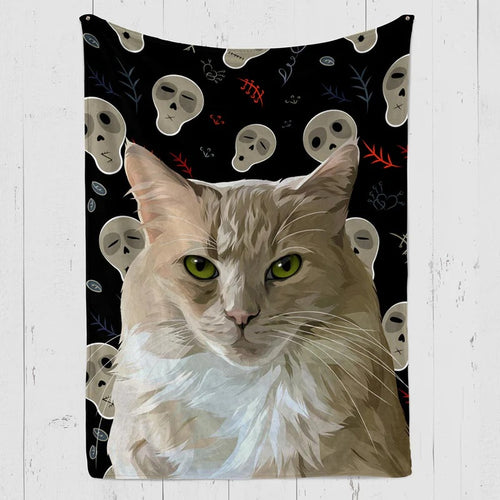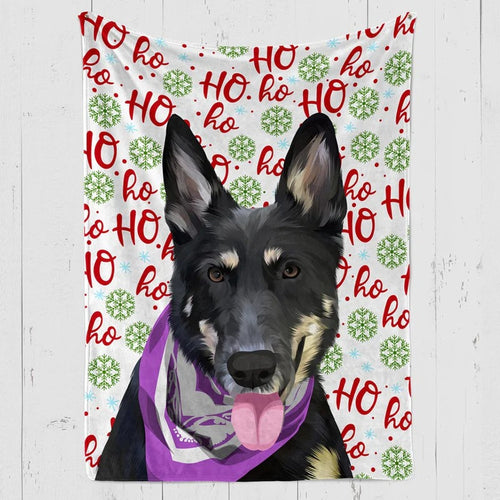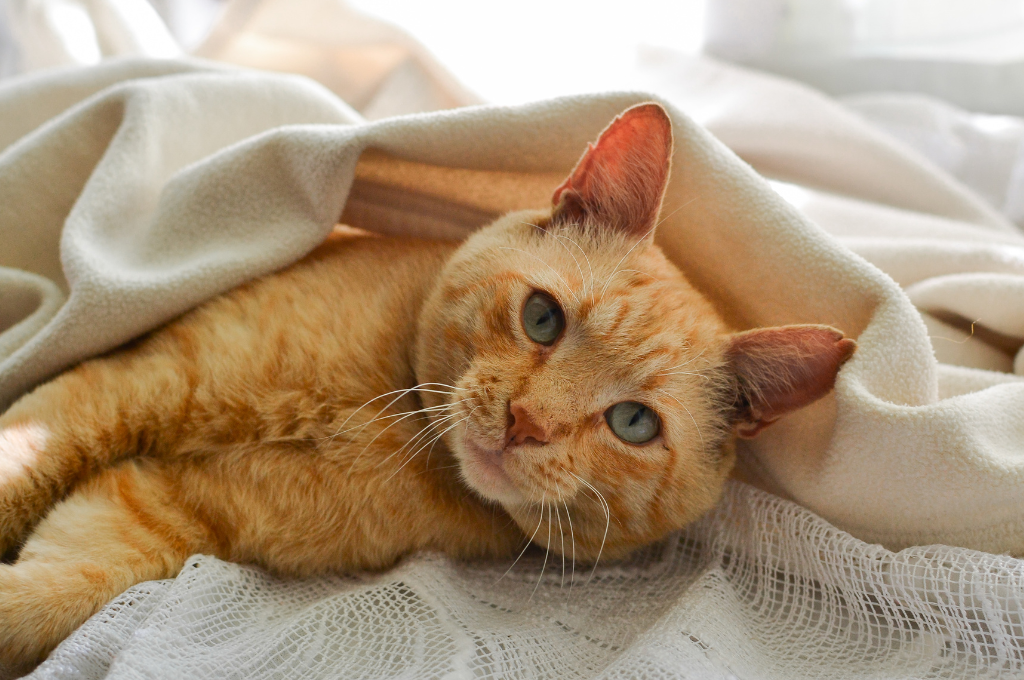
Dogs are known for their loyalty and affection towards their owners. One common behaviour that many dog owners experience is that their furry friends choose to sleep on top of them. It may seem cute and endearing to have your dog snuggle up and snooze on you, but have you ever wondered why they do it? In this blog post, we will explore the reasons behind this behaviour and discuss whether it is beneficial or problematic for both you and your dog. So, let's dive in and uncover the mysteries behind why your dog loves to sleep on you.
The Fascination of Canine Slumber: Unraveling the Mystery :
Having your dog sleep on you can evoke mixed emotions. On one hand, it can create a strong bond between you and your furry companion. It provides a sense of comfort, security, and warmth for both parties involved. Your dog may see you as their haven, and sleeping on you strengthens their attachment to you.
However, there are some downsides to this behaviour as well. It can be disruptive to your sleep, especially if your dog is large or restless during the night. Additionally, allowing your dog to sleep on you can reinforce dominant behaviour, as they perceive themselves as being in a higher position within the pack hierarchy. This may lead to other behavioural issues if not properly addressed.
While having your dog sleep on you can create a strong bond and provide comfort, there are both pros and cons to consider. Let's explore the advantages and drawbacks of this behaviour:
Pros
- Deepens the bond between you and your dog.
- Provides a sense of comfort, security, and warmth for both of you.
- Can be a source of relaxation and stress relief.
- Enhances the feeling of companionship and closeness.
Cons
- Disrupts your sleep, especially if your dog is large or restless.
- Reinforces dominant behaviour in your dog, which may lead to other issues.
- Limits your personal space and may cause inconvenience.
- Can create tensions within the family dynamic if preferences differ.
It's important to weigh these pros and cons and consider your personal preferences and circumstances when deciding on whether to allow your dog to sleep on you or not.
Snuggling Up: Unveiling the Reasons Behind Your Dog's Affectionate Behavior
Dogs are known for their affectionate nature, and their desire to sleep on you stems from various factors. Delve into the world of canine emotions and discover the reasons why dogs choose to sleep on you; why your furry companion seeks closeness, comfort, and security by snuggling up on your lap or beside you. Uncover the deep bond between you and your dog that is reinforced through this endearing behaviour and get answers to questions like, “Why does my dog lay on top of me?”
1. Seeking Comfort and Security
Dogs are pack animals and naturally seek the companionship and protection of their pack members. By sleeping on you, your dog feels safe and secure, much like they would with their littermates. It provides them with a sense of comfort and reassurance. Furthermore, when dogs lay their heads on you or rest their heads on you, it allows them to feel close to your comforting presence. The scent and warmth from your body can have a calming effect on them, promoting relaxation and a sense of security.
2. Bonding and Affection
You might be wondering, “Why does my dog lay his head on top of me?” Well, dogs are highly social animals that thrive on human interaction and affection. Sleeping on you allows them to be close to you and strengthens the bond between you and your dog. It's their way of showing love and affection towards their favourite human. In addition to physical comfort, dogs also find emotional comfort in being close to their owners. Your presence provides them with a sense of emotional stability and support, reducing anxiety and promoting overall well-being.
3. Temperature Regulation
Dogs regulate their body temperature differently than humans. They tend to have a higher body temperature, and sleeping on you helps them stay warm. Your body's heat acts as a natural source of warmth, especially during colder nights. When your dog curls up or lays on top of you, it can benefit from the heat radiating from your body. The close physical contact allows them to absorb and retain warmth, keeping them cosy and comfortable throughout the night.
4. Separation Anxiety
Dogs suffering from separation anxiety may choose to sleep on their owners to alleviate their anxiety. Being close to you provides them with a sense of security and reduces their stress levels. For dogs with separation anxiety, your presence acts as a comforting presence that helps them feel less alone and anxious when you are apart. Sleeping on you allows them to feel connected and reassured, mitigating their fear of being separated from you.
5. Pack Hierarchy
Dogs have an innate instinct to establish a hierarchy within their pack. By sleeping on top of you, they may be asserting their dominance and claiming you as part of their pack. This behaviour is more common in dogs that have not received consistent training and boundaries. Now, several dog owners wonder, “Why does my dog rub his face on me?” When your dog rubs their face on you, it could be a way for them to mark you with their scent. Dogs have scent glands in their face, and by rubbing against you, they are essentially leaving their scent behind. This behaviour is a way for dogs to mark their territory and establish a sense of ownership or familiarity.
6. Attention-Seeking
Dogs are clever creatures and quickly learn which behaviours garner attention from their owners. If your dog receives praise, petting, or other forms of positive reinforcement when they sleep on you, they may continue doing so to seek your attention. Another behaviour that some dogs exhibit to seek attention is rubbing their face on you. This can also be a sign of them showing affection for you.
Encouraging Your Dog to Sleep on Other Family Members: Tips and Tricks
While it's heartwarming to have your dog sleep on you, it's important to ensure equal affection among all family members. Discover effective strategies to encourage your dog to sleep on your spouse or children, creating strong bonds and a sense of inclusivity. So if you are wondering how to Get a Dog to Lay On Your Spouse or Kids, implement these tips and tricks to spread the snuggles and cuddles throughout your household.
1. Encourage Bonding
Have your spouse or kids spend quality time with your dog, engaging in activities they enjoy together. This will help strengthen their bond and increase the likelihood of your dog choosing to sleep on them. Allowing your spouse or kids to take an active role in your dog's care and providing them with attention, affection, and rewards will help foster a sense of trust and companionship. Over time, this can increase the likelihood of your dog choosing to sleep on them, as they feel comfortable and secure in their presence.
2. Create Comfortable Sleeping Spots
Provide your spouse or kids with cosy and inviting sleeping areas for the dog. Use soft bedding, blankets, and toys to make it appealing for your dog to choose those spots instead of sleeping on you. By providing alternative comfortable sleeping areas, you are giving your dog attractive options that compete with sleeping on you. Make sure to keep these spots clean and free of any disturbances, allowing your dog to relax and feel secure in their own cosy space. Remember to praise and reward your dog when they choose to sleep in these designated areas.
3. Positive Reinforcement
When your dog chooses to sleep on your spouse or kids, make sure to provide them with positive reinforcement. Give them treats, offer verbal praise, or engage in playtime to show your appreciation for their behaviour. This positive reinforcement will strengthen the association between sleeping with your family members and receiving rewards, making it more likely for your dog to continue this behaviour in the future. Consistency is vital when using positive reinforcement. Be sure to reward your dog every time they choose to sleep on your spouse or kids, reinforcing the desired behaviour and increasing the likelihood of them seeking out those comfortable sleeping spots.
4. Redirect Attention
When your dog attempts to sleep on you, gently guide them towards your spouse or kids by offering treats or toys in their direction. Gradually, your dog will associate the alternative sleeping spots with positive rewards.
5. Consistency and Patience
Changing a dog's behaviour takes time and consistency. Encourage your spouse or kids to be patient and consistent in their efforts to create a new sleeping routine with the dog. It may take some time for the dog to adjust and break the habit of sleeping on you.
Putting an End to Your Dog's Top-of-the-Pile Sleeping Habits
If your dog's habit of sleeping on top of you becomes problematic, it's essential to set boundaries and redirect their behaviour. Learn how to communicate and establish healthy sleeping patterns by guiding your dog towards its own designated sleeping area. With consistency, patience, and positive reinforcement, you can create a peaceful sleeping routine for both you and your furry friend. Here are some steps you can take to discourage this behaviour:
1. Set Boundaries
Establish clear boundaries by training your dog to sleep in its own designated area, such as a dog bed or crate. Consistently reinforce these boundaries and redirect your dog to their sleeping spot whenever they try to sleep on you.
2. Create a Comfortable Alternative
Make your dog's sleeping area cosy and inviting. Provide a comfortable bed with soft bedding, toys, and familiar scents. Make it a desirable place for your dog to sleep and spend time.
3. Positive Reinforcement
When your dog chooses to sleep in their designated spot, reward them with praise, treats, or a favourite toy. Positive reinforcement will encourage them to continue using their sleeping area instead of sleeping on you.
4. Ignore the Behavior
If your dog attempts to sleep on you, calmly and gently remove them without giving attention or reacting to the behaviour. Avoid scolding or punishing them, as it may create confusion or anxiety.
5. Consistent Training
Consistency is key when trying to change a dog's behaviour. Ensure that all family members are on the same page and enforce the training methods consistently. Over time, your dog will learn that sleeping on you is not acceptable.
Breeds That Love to Cuddle: Discovering the Affectionate Canine Companions
Some dog breeds have an innate inclination towards snuggling and sleeping close to their owners. While all dogs have the potential to be affectionate, some breeds are known for their love of close physical contact and snuggling. Here are a few dog breeds that tend to be more inclined to sleep on or cuddle with their owners:
- Cavalier King Charles Spaniel: These dogs are gentle, affectionate, and love nothing more than being close to their owners. They often seek out laps or curl up beside their humans for sleep.
- Labrador Retriever: Labs are known for their friendly and loving nature. They enjoy being part of the family and are often found snuggled up next to their owners.
- Golden Retriever: Golden Retrievers are renowned for their loyalty and affection. They have a strong desire to be close to their owners and will happily sleep on or beside them.
- Bichon Frise: Bichons are small, fluffy dogs that thrive on human companionship. They form strong bonds with their owners and are often found cuddled up in bed or on laps.
Frequently Asked Questions
Why Does My Dog Sleep on Top of My Chest?
Sleeping on your chest allows your dog to be close to your heartbeat, providing a soothing and comforting experience. It also gives them a sense of security and closeness to you.
Why Does My Dog Lay His Head Over My Neck?
Laying their head over your neck is a way for dogs to show trust, affection, and a desire for closeness. It is an intimate gesture that signifies their bond with you.
Why Does My Dog Only Sleep on Me and Not My Partner?
There could be several reasons why your dog chooses to sleep on you rather than your partner. Dogs form unique bonds with individual family members based on their interactions and experiences. Here are a few possible explanations:
- Comfort and Familiarity: Your dog may feel more comfortable and familiar with you due to spending more time together or having a stronger bond. Dogs are creatures of habit and often seek out the person they feel most connected to when it comes to sleep.
- Scent and Association: Dogs have a highly developed sense of smell, and they are drawn to scents that are familiar and comforting. If you spend more time with your dog and have a stronger scent association, they may naturally gravitate towards sleeping on you.
- Sleep Routine: Dogs thrive on routines and predictability. If you have established a consistent sleep routine with your dog, they may prefer sleeping on you simply because it has become a habitual part of their nighttime routine.
- Personal Space and Energy: Dogs are highly perceptive of human energy and personal space. If your partner has different energy or personal space preferences that do not align with your dog's comfort, they may choose to sleep on you instead.
It's important to remember that every dog is unique, and their preferences for sleeping arrangements can vary. It's not necessarily an indication of favouritism or rejection towards your partner.
Why it's Best to Discourage Your Dog from Sleeping on Top of You?
While it may be tempting to allow your dog to sleep on top of you, there are reasons why it's best to discourage this behaviour:
- Disrupted Sleep: Dogs, especially larger breeds, can disrupt your sleep by shifting positions, snoring, or hogging the bed. This can lead to a lack of quality sleep for both you and your dog.
- Reinforced Dominance: Allowing your dog to sleep on top of you can reinforce dominant behaviour. Dogs are pack animals, and when they perceive themselves in a higher position, it can result in other behavioural issues, such as possessiveness or resource guarding.
- Personal Boundaries: It's important to establish personal boundaries with your dog to maintain a healthy and balanced relationship. Encouraging them to sleep in their own designated area teaches them respect for personal space and promotes independence.
- Partner and Family Dynamics: Sleeping on top of you can create tensions or feelings of exclusion within your family dynamic. It's essential to consider the preferences and comfort of all family members, including your partner or children.
In a Nutshell
The behaviour of dogs sleeping with their owners is influenced by various factors such as comfort, security, affection, and pack dynamics. While it may be endearing to have your dog sleep on you, it's important to strike a balance between bonding and establishing healthy boundaries. Understanding the reasons behind your dog's choice to sleep on you allows you to make informed decisions on whether to encourage or discourage the behaviour.
If you prefer your dog to sleep on its own bed or designated area, consistency, positive reinforcement, and patience are key to teaching them this new routine. Remember, every dog is different, and their sleeping preferences can vary. By prioritizing their comfort, providing alternative cosy spots, and promoting a strong bond through positive interactions, you can create a sleeping arrangement that benefits both you and your beloved furry friend.
Resources:
Camp Canine SB: https://campcaninesb.com/why-your-dog-likes-laying-and-sleeping-close-to-you/
Dogletics.org: https://dogletics.org/why-does-my-dog-always-lay-on-me
Pawsafe: https://pawsafe.com/blogs/deodorizers/why-does-my-dog-lay-on-me
Related Articles :
Similar Articles
Latest Review on Woof Blankets
To have such a masterpiece by my side every day is a gift for me and my memories with Rex. Thank you WoofBlankets for such an opportunity to recreate his image on a blanket.Lara o’ Miguel US, California
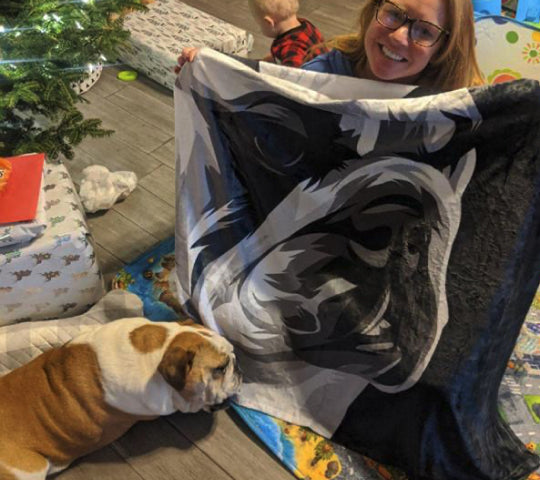
COLLECTION WORTH EVERY PENNY
BEST SELLERS
-
Woofy Single Color Custom Pet Blanket
![Woofy Single Custom Pet Blanket – Woof Blanket]()
- -41%
BlanketsSHOP NOW- Regular price
- from $64.95
- Sale price
- from $64.95
- Regular price
-
$109.95 - Unit price
- per
Sold out -
The French Sailor - Custom Pet Portrait
![]()
- -25%
CanvasSHOP NOW- Regular price
- from $59.95
- Sale price
- from $59.95
- Regular price
-
$79.95 - Unit price
- per
Sold out -
Summer Time Custom Pet Blanket
![Summer Time Custom Pet Blanket]()
- -39%
BlanketsSHOP NOW- Regular price
- from $69.95
- Sale price
- from $69.95
- Regular price
-
$114.95 - Unit price
- per
Sold out -
Pet Memorial Custom Photo Collage Blanket
![Personalized pet memorial quilt with photos]()
- -41%
BlanketsSHOP NOW- Regular price
- from $64.95
- Sale price
- from $64.95
- Regular price
-
$109.95 - Unit price
- per
Sold out -
4th of July Custom Pet Blanket
![4th of July Custom Pet Blanket Online]()
- NEW
- -39%
BlanketsSHOP NOW- Regular price
- from $69.95
- Sale price
- from $69.95
- Regular price
-
$114.95 - Unit price
- per
Sold out -
Modern Pet Portraits
![Cute Dog Modern Pet Portraits Online]()
- NEW
- -36%
CanvasSHOP NOW- Regular price
- from $59.95
- Sale price
- from $59.95
- Regular price
-
$93.95 - Unit price
- per
Sold out -
The Admiral - Custom Pet Portrait
![The Admiral - Custom Pet Portrait Online]()
- NEW
- -25%
CanvasSHOP NOW- Regular price
- from $59.95
- Sale price
- from $59.95
- Regular price
-
$79.95 - Unit price
- per
Sold out -
Woof Splash Custom Pet Blanket
![Woof Splash Custom Pet Blanket]()
- -39%
BlanketsSHOP NOW- Regular price
- from $69.95
- Sale price
- from $69.95
- Regular price
-
$114.95 - Unit price
- per
Sold out -
The Policeman - Custom Pet Portrait
![]()
- NEW
- -25%
CanvasSHOP NOW- Regular price
- from $59.95
- Sale price
- from $59.95
- Regular price
-
$79.95 - Unit price
- per
Sold out -
The General - Custom Pet Portrait
![]()
- NEW
- -25%
CanvasSHOP NOW- Regular price
- from $59.95
- Sale price
- from $59.95
- Regular price
-
$79.95 - Unit price
- per
Sold out -
Woof Love Custom Pet Blanket
![Woof Love Custom Pet Blanket]()
- -39%
BlanketsSHOP NOW- Regular price
- from $69.95
- Sale price
- from $69.95
- Regular price
-
$114.95 - Unit price
- per
Sold out -
The Ambassador - Custom Pet Portrait
![The Ambassador - Custom Pet Portrait Online]()
- NEW
- -25%
CanvasSHOP NOW- Regular price
- from $59.95
- Sale price
- from $59.95
- Regular price
-
$79.95 - Unit price
- per
Sold out -
Fall In Love Custom Pet Blanket
![Fall In Love Custom Dog Blanket]()
- NEW
- -39%
BlanketsSHOP NOW- Regular price
- from $69.95
- Sale price
- from $69.95
- Regular price
-
$114.95 - Unit price
- per
Sold out -
Cartoonized Pet Portraits (New)
![Cartoonized Pet Custom Portraits Online]()
- -36%
SHOP NOW- Regular price
- from $59.95
- Sale price
- from $59.95
- Regular price
-
$93.95 - Unit price
- per
Sold out -
The Classy Lady - Custom Pet Portrait
![The Classy Lady]()
- NEW
- -25%
CanvasSHOP NOW- Regular price
- from $59.95
- Sale price
- from $59.95
- Regular price
-
$79.95 - Unit price
- per
Sold out -
The Duke - Custom Pet Portrait
![The Duke - Custom Pet Portrait]()
- NEW
- -25%
CanvasSHOP NOW- Regular price
- from $59.95
- Sale price
- from $59.95
- Regular price
-
$79.95 - Unit price
- per
Sold out -
Dog In Suit- Custom Pet Portrait
![Dash Dog In Suit- Custom Pet Portrait Online]()
- NEW
- -25%
CanvasSHOP NOW- Regular price
- from $59.95
- Sale price
- from $59.95
- Regular price
-
$79.95 - Unit price
- per
Sold out -
The Princess - Custom Pet Portrait
![]()
- NEW
- -25%
CanvasSHOP NOW- Regular price
- from $59.95
- Sale price
- from $59.95
- Regular price
-
$79.95 - Unit price
- per
Sold out -
Modern Pet Portrait with One Mug
![Modern Pet Portrait with One Mug]()
- -25%
Print MaterialSHOP NOW- Regular price
- from $99.95
- Sale price
- from $99.95
- Regular price
-
$133.95 - Unit price
- per
Sold out -
The Aristocrat - Custom Pet Portrait
![The Aristocrat - Custom Pet Portrait At Best Price]()
- NEW
- -25%
CanvasSHOP NOW- Regular price
- from $59.95
- Sale price
- from $59.95
- Regular price
-
$79.95 - Unit price
- per
Sold out -
Single Color Custom Blanket with 1 Mug
![Single Color Custom Blanket with 1 Mug]() BlanketsSHOP NOW
BlanketsSHOP NOW- Regular price
- from $99.95
- Sale price
- from $99.95
- Regular price
-
- Unit price
- per
Sold out -
Single Color Custom Blanket with 2 Pillows
![Single Color Custom Pet Blanket with 2 Pillows]()
- -21%
BlanketsSHOP NOW- Regular price
- from $99.95
- Sale price
- from $99.95
- Regular price
-
$125.95 - Unit price
- per
Sold out -
The Dog in Suit Custom Pet Mug
![]()
- -20%
MugsSHOP NOW- Regular price
- $39.95
- Sale price
- $39.95
- Regular price
-
$49.95 - Unit price
- per
Sold out -
Angel Custom Pet Mug
![]()
- -20%
MugsSHOP NOW- Regular price
- $39.95
- Sale price
- $39.95
- Regular price
-
$49.95 - Unit price
- per
Sold out -
This Human Belongs To - Custom Pet Mug
![]()
- NEW
- -20%
MugsSHOP NOW- Regular price
- $39.95
- Sale price
- $39.95
- Regular price
-
$49.95 - Unit price
- per
Sold out -
It's Not Dog Hair Custom Pet Mug
![]()
- NEW
- -20%
MugsSHOP NOW- Regular price
- $39.95
- Sale price
- $39.95
- Regular price
-
$49.95 - Unit price
- per
Sold out -
My Dog Is My Valentine Custom Pet Mug
![]()
- NEW
- -20%
MugsSHOP NOW- Regular price
- $39.95
- Sale price
- $39.95
- Regular price
-
$49.95 - Unit price
- per
Sold out -
3 Photos With Message Custom Pet Mug
![]()
- NEW
- -20%
MugsSHOP NOW- Regular price
- $39.95
- Sale price
- $39.95
- Regular price
-
$49.95 - Unit price
- per
Sold out -
My Valentine Has Four Legs- Personalized Mugs
![]()
- NEW
- -20%
MugsSHOP NOW- Regular price
- $39.95
- Sale price
- $39.95
- Regular price
-
$49.95 - Unit price
- per
Sold out -
Dog Mamma Custom Pet Coffee Mug
![]()
- -20%
MugsSHOP NOW- Regular price
- $39.95
- Sale price
- $39.95
- Regular price
-
$49.95 - Unit price
- per
Sold out -
Uncle Sam - Custom Pet Portrait
![]()
- NEW
- -25%
CanvasSHOP NOW- Regular price
- from $59.95
- Sale price
- from $59.95
- Regular price
-
$79.95 - Unit price
- per
Sold out -
The Revolutionary Emperor - Custom Pet Portrait
![]()
- NEW
- -25%
CanvasSHOP NOW- Regular price
- from $59.95
- Sale price
- from $59.95
- Regular price
-
$79.95 - Unit price
- per
Sold out -
The Princess Paws - Custom Pet Portrait
![]()
- -25%
CanvasSHOP NOW- Regular price
- from $59.95
- Sale price
- from $59.95
- Regular price
-
$79.95 - Unit price
- per
Sold out -
Exclusive Custom Pet Blanket
![Exclusive Custom Pet Blanket]()
- -39%
BlanketsSHOP NOW- Regular price
- from $69.95
- Sale price
- from $69.95
- Regular price
-
$114.95 - Unit price
- per
Sold out -
The Dark Crusader Knight - Custom Pet Portrait
![]()
- -25%
CanvasSHOP NOW- Regular price
- from $59.95
- Sale price
- from $59.95
- Regular price
-
$79.95 - Unit price
- per
Sold out

